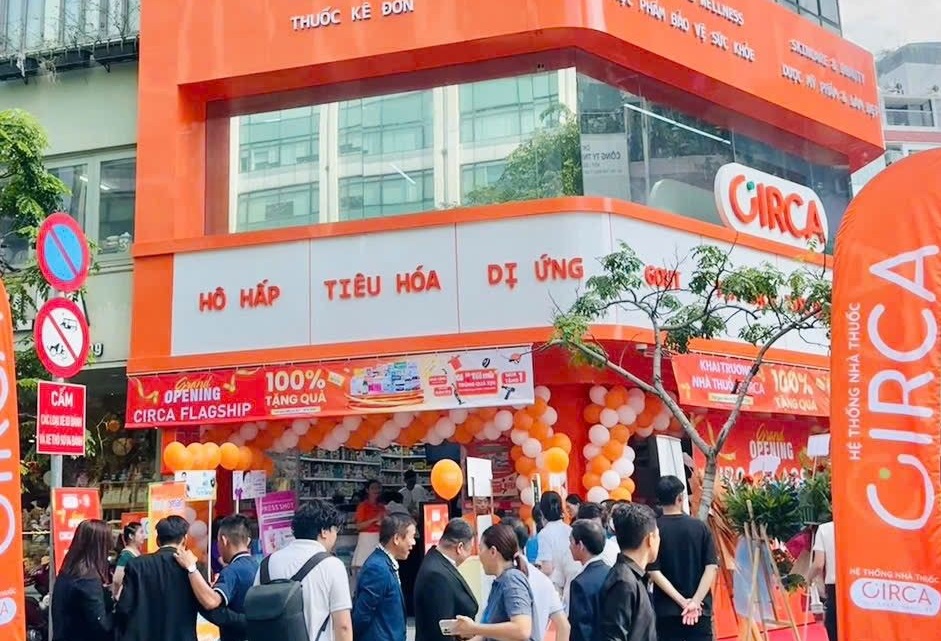Vietnam’s pharmacy retail market is soaring—on paper. With double-digit annual growth, a rising middle class, and increasing health awareness post-COVID, it has become one of Southeast Asia’s most dynamic healthcare battlegrounds.
But beneath the surface, cracks are forming. The collapse of Pharmacity—once touted as Vietnam’s answer to CVS—has served as a cautionary tale: aggressive expansion, a convenience-store mindset, and misaligned pricing strategies can’t substitute for patient trust, clinical consistency, or local insight.
Now, a new contender—Circa—is attempting to rewrite the script. But success may depend less on app-based convenience or transaction volume and more on a return to the fundamentals: trust, proximity, and medically informed operations.
“Vietnamese consumers don’t want an ‘omnichannel healthcare experience’,” says one senior industry analyst in Hanoi. “They want to walk into a pharmacy and talk to someone who remembers their name.”
Pharmacity’s Fall: When Scale Outpaces Strategy
Once a VC darling with ambitions to open 5,000 stores, Pharmacity’s rise was meteoric—and so was its fall.
Its convenience-store strategy treated medications like packaged snacks, deploying aggressive site rollouts without investing in operational integrity. Prices fluctuated, pharmacist training lagged, and inventory inconsistencies became a recurring frustration. As private capital dried up and debt mounted, the company found itself overextended and underdelivering.
In the end, it wasn’t competition or regulation that brought Pharmacity down. It was a failure to recognize that pharmacy retail is still healthcare—not FMCG.
Circa’s FOCO Model: Franchise Meets Control
Enter Circa, a startup with fewer locations but a tighter thesis.
Circa is betting on a FOCO model—Franchise-Owned, Company-Operated—a hybrid approach that tries to square the circle between franchising capital efficiency and the operational discipline healthcare demands.
Franchisees provide local capital and property, while Circa retains full operational control—from pharmacist training to supply chain logistics. It’s a model that’s worked in sectors like food service and specialty retail. Whether it can work in healthcare, particularly in Vietnam’s fragmented regulatory and consumer environment, remains to be seen.
But observers are cautiously optimistic.
“It’s smart,” says a former Pharmacity executive, now a private consultant. “It gives you geographic reach without losing consistency. But it requires rigor—Six Sigma levels of it.”
Personalization Over Digitalization
Circa has also taken a contrarian stance on what customers actually want.
While many rivals tout app ecosystems, remote prescriptions, and AI-generated health plans, Circa is doubling down on human relationships. Pharmacists are trained to offer not just pills, but continuity of care: follow-up consultations, wellness tracking, and lifestyle advice.
“Digital is a tool, not the product,” a Circa spokesperson said. “We’re not building a pharmacy app. We’re building community healthcare with digital support.”
Early signs are promising. In several districts across Ho Chi Minh City, Circa outlets report higher repeat visits and longer dwell times than competitors—metrics that suggest customers are not just transacting, but trusting.
The Global Lesson: It’s Not About Speed. It’s About Stickiness.
Vietnam isn’t the only country to wrestle with the pharmacy retail dilemma. In the U.S., Rite Aid has struggled to stay relevant. In the U.K., Boots has lost a generation to Amazon. Meanwhile, in India, Apollo Pharmacy has thrived by integrating tech without abandoning the in-store experience.
For Circa, the message is clear: avoid Pharmacity’s trap of confusing scale with sustainability. Stickiness—not speed—is the new north star.
A Storm or a Sunrise?
Circa’s window of opportunity is narrow but real. With investors wary, regulators increasingly active, and consumers more discerning, the company will need to prove that its hybrid model can hold under pressure.
But one thing is certain: Vietnam’s pharmacy future won’t be built solely through apps, algorithms, or acceleration. It will be won—or lost—at the corner store, with a conversation between a trusted pharmacist and a returning customer.
In healthcare, growth doesn’t come from convenience. It comes from care.

